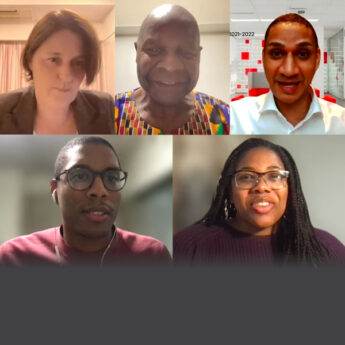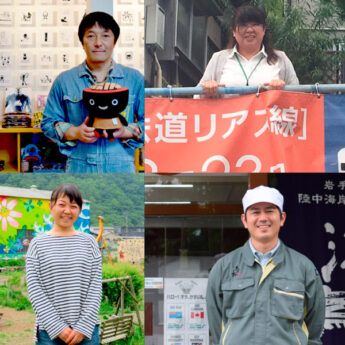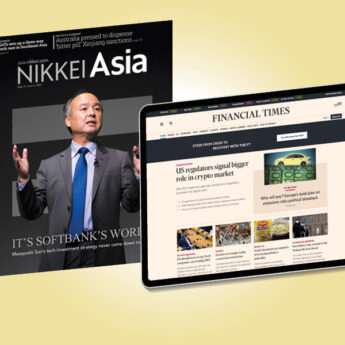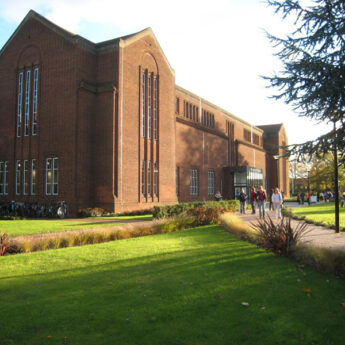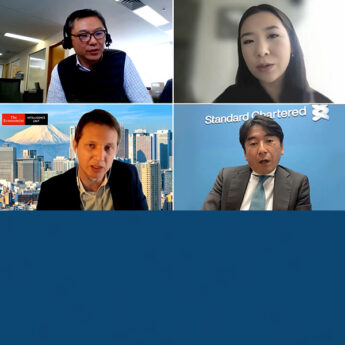Lord McConnell warns that EU debate frets Japan firms
- Gap between “yes” and “no” voters is narrowing
- Rejection of centre politicians also driving the agenda
- Independence talks should consider global implications
Lord Jack McConnell spoke on “The Future of the UK” at a luncheon hosted by the British Chamber of Commerce in Japan (BCCJ) at the Shangri-La Hotel, Tokyo, on 19 May. About 50 BCCJ members and guests attended to hear the former Scottish first minister’s views on the forthcoming referendum.
Residents of Scotland will be asked to answer the monumental question, “Should Scotland be an independent country?” at the ballot box on 18 September.
The issues raised in the debate so far, explained McConnell, are essentially all about uncertainty should Scotland vote yes. The matters under discussion include doubts over Scotland’s use of the British currency, its ability to join or re-join the European Union, taxes, pensions, security policy and nuclear weapons.
Although these are all relevant questions, he expressed concern that wider issues have yet to be addressed, and that in recent months, the debate has become simplistic and somewhat negative. He suggests the public’s disenchantment with politicians and rejection of the “centre” also seems to be driving the agenda.
“This is not a choice between Scotland and Westminster”, he said. “This is a choice between a Scotland that has a strong, devolved parliament inside the United Kingdom, and a Scotland that has an independent parliament outside the United Kingdom”.
An exploration of the way in which the UK is governed—since the devolution of Scotland in 1999 and of Wales and Northern Ireland—should be a key component of the debate, he said.
The recent European elections also have implications for the future of the UK, according to McConnell. He believes success by extreme right-wing parties—including the UK Independence Party—across Western Europe may kick-start a debate in the UK again about the country’s membership of the European Union (EU).
This question worries Japanese firms, McConnell said. The UK is Japan’s biggest investment market in the EU and is home to about 1,300 Japanese firms that directly benefit about 140,000 people, while UK exports to Japan are believed to be valued at just under £10bn a year.
McConnell was visiting Japan to lead a roundtable discussion on the latest developments in the UK political situation at the annual Japan meeting of the UK–Japan 21st Century Group.
Participants of the group also expressed concerns about Scottish independence and any possibility the UK may leave the EU, he said.
Think-tank brings nations closer
The UK–Japan 21st Century Group was set up in 1984 as the UK–Japan 2000 Group, to promote dialogue and cooperation between the two nations at the joint recommendation of Margaret Thatcher and Yasuhiro Nakasone, former prime ministers.
It is a coalition of private and public sectors, as well as civil society leaders, with a diverse membership—representing industry, finance, academia, the media and government.
The think-tank—which meets alternately in the UK and Japan—held its 31st annual conference in Hakone on 16–18 May.
Director Lord Jack McConnell said the group is striving to raise the profile of the UK–Japan relationship—particularly economic aspects—which today may be undervalued by politicians and the British public.
“The impression that there are other economies that are more important to the UK than the Japanese economy is one of those that we want to try and quash”, he said.
This year’s event began with an official meeting with Prime Minister Shinzo Abe and a discussion with ministers and senior officials from the Ministry of Defense. Topics presented at the conference include sustainable economic growth, global health, gender diversity in politics and business, and nuclear strategy.
More incentives and systems to increase bilateral student exchanges, as well as ways to improve the number of people studying Japanese in the UK, also were extensively discussed.
The UK’s membership in the EU makes it a more attractive place for investment, he explained, as Japanese firms tend to prefer putting their money in stable integrated markets. But more important, Japanese investment in Britain gives Tokyo peace of mind, because politicians here believe Britain can help shape the EU’s economic and social policies.
With the gap between “yes” and “no” votes closing, the result could be closer than anyone anticipates, McConnell said. He called on politicians to improve the level of the independence debate.
If we look at tackling the big global challenges of economic growth, as well as the environment and security, sharing sovereignty at both the UK and European level is “absolutely fundamental”, he added.
“Scots’ contributions to the world for the last 300 years have been phenomenal—we are punching way above our weight”, he said, emphasising that it was “no coincidence” this success started in the century after the union was formed.
“The UK is the most successful political union in the world, has been for 300 years and remains so today”, McConnell concluded.

